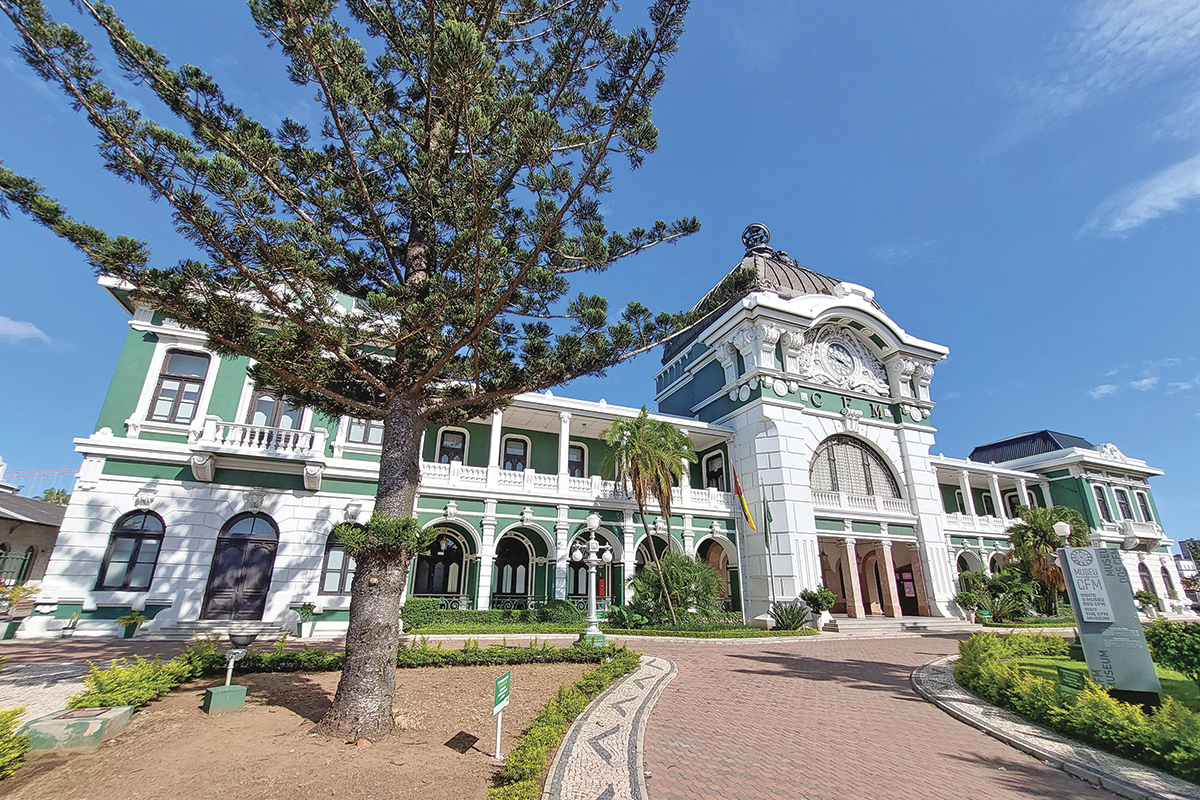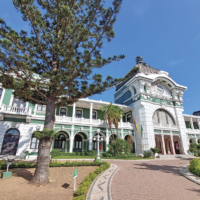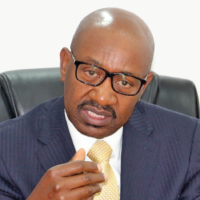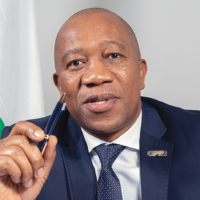With a long coastline that stretches almost 3,000 km along the southeast border of Africa, Mozambique’s excellent geostrategic position gives it privileged access to several landlocked countries, making it a key maritime gateway and trade conduit for substantial volumes of goods and services each year.
The strength of other countries’ reliance on its marine operations has been highlighted by the stellar growth and performance of its ports in recent years. This was illustrated clearly by the Port of Maputo’s setting a new record in 2022 for the amount of cargo handled. A 20% year-on-year hike saw it move 26.7 million tons.
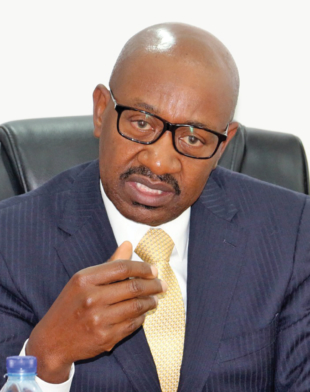
“Because of our proximity to Zimbabwe, Eswatini, Malawi and Zambia, we have massive regional responsibility to facilitate trade and movement within, and between, our economies,” explained Minister of Transport and Communications Mateus Magala.
“We are trying to ensure that our air transport, rail transport and ports are well-integrated. Our philosophy is we have the corridors — which we call development corridors — and need to utilize them as spaces of economic opportunity.
“These corridors are not only for the movement of cargo, goods and people, but also a space of economic transformation, through industrialization, services and quality job generation, creating more inclusive and more equal societies through better incomes and new socio-economic developments.
“We are using some of the corridors as free zones, where businesses can come and profit from incentives for them to produce, to ensure they repatriate the benefits, but also so they result in decent developments for our people,” Magala said.
The Mozambique government is eager to repeat the success and growth of its ports sector in other modes of transport and logistics networks. This will almost certainly involve private companies from home and abroad, meaning opportunities for foreign investors and players will be plentiful.
Port of Maputo is national success story
For the past 20 years, the Port of Maputo has blossomed under the watchful eye of Maputo Port Development Company. This public-private venture emerged from the partnership between the Mozambican Railway Company (Caminhos de Ferro de Mocambique) and Portus Indico, comprised of Grindrod, DP World and local entity Mozambique Gestores.
“We needed to modernize our ports and understood that working with the private sector and in partnership with them, was the way to go,” Magala added. “We opened concessions for the ports to private operators, allowing us to work in coordination with the best in the market.
“At the Port of Maputo, we have DP World Maputo operating the container terminal. Dubai Ports is a big player and allows us to get skills, time, market and technology; that is the best in the marketplace. Our ports operate to the same standards as leading ports. We are competing on the same key performance indicators and have the same managerial discipline and marketing discipline.
“More importantly, we understand that at the end of the day, what matters for ports is the end-to-end movement of goods. It’s not just that the port is efficient. If you don’t have the right connections or the right shipping lines, it doesn’t matter that you are efficient and you can load quickly, as you’re not connected.”
The experienced politician added that an increasingly important aspect for busy, international ports like Maputo is connectivity to market, which is where heavy investment in cutting-edge digital technology comes into its own.
“You can only achieve connectivity with the required effectiveness if you are digitalized,” he continued. “Port of Maputo is fully digitalized, meaning we are well aware of where the cargo was born and where the cargo will die.
“We are certainly looking for further opportunities to invest in infrastructure, technology and processes. A lot of shippers are now using our ports and the volumes have grown exponentially in a short space of time. We are adopting different approaches, one of which involves inviting the shippers to find joint solutions on how we can ship this massive growth of trade.
“Recently, we have been discussing investment in container handling and greater spending on infrastructure to improve access and capacity at our various ports. We would welcome investment from major players in the port business and from leading shipping lines.”
Full speed ahead for transport projects
Given Japan’s outstanding reputation for technology, design and development, the minister sees real opportunities for Japanese investors in the areas of port infrastructure and environmentally friendly forms of public and private transportation over the coming years as part of a global push against harmful emissions.
“Japan has been a trusted partner over many years and we want to keep the relationship growing because they are credible, keep their word and believe in what they commit to,” Magala continued. “One of the major areas attracting Japanese investment right now is in the Nacala Corridor. We have seen around $300 million invested in upgrades and modernization at the Port of Nacala.
“Mozambique has some of the largest graphite mines in the world. Unfortunately, this material is exported raw to foreign markets as we do not have any high-tech factories to turn it into batteries for electric vehicles, so this is a huge opportunity for Japanese companies.
“Such factories could produce batteries for sale to the Mozambican market, as well as to other markets like Japan. We have the skills, raw material and an institutional framework which facilitates the repatriation of capital. Mozambique is a country that respects the right of investors to expatriate their capital without restriction.”
Given the impact of Mozambique’s transport networks on the standards of living for the millions of people in its landlocked neighbors, the swift movement of cargoes to and from the coastal gateways can impact national economies and companies active in a range of sectors.
Ports and Railways of Mozambique (CFM) is the state-owned company responsible for ensuring the smooth operation of rail infrastructure and rolling stock, along with the safe and efficient management of ports.
The rehabilitation and revival of old railway lines is one of the entity’s most important tasks at present, with tenders for several such projects awarded to international firms in recent years, including bidders from China and India.
Progress has certainly been made, as illustrated in early 2023 when freight cars completed the first railway journey in almost 40 years from Vila Nova da Fronteira to Malawi. According to CFM, the new line will provide a major boost to freight transportation between Beira and Malawi, with passenger services also likely to be launched in the not-too-distant future.
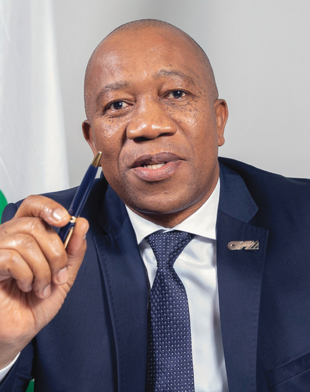
“We have invested in capacity increases of our railway lines, and locomotive equipment and wagons with greater capacity,” explained CFM Chairman Agostinho Langa Junior.
“In tandem, we have also increased the capacity of the railway lines through the construction of new bridges to increase the weight per axle of our compositions. Today, we make lines with a capacity of up to 27 tons per axle. Due to these investments, we saw a lot of growth in volumes both in the ports and in the railroads.
“In 2022, for example, we recorded year-on-year growth of around 6% in the port sector, and around 12% in the railways segment. We continue to invest in the modernization of the rails and the use of computerized digital management systems for our ports, as well as railways.
“Today, we have a train command system that is operated via satellite, which provides us with better safety and fewer accidents. We have also been working with neighboring countries that are major users of our infrastructure and ports. We are planning — together with a Mozambican electricity company — to use the electric rail system instead of diesel, which would have a huge positive economic impact.
“We are planning on increasing the line capacity of the railways, studying new technologies and are also thinking about building new lines, in addition to improving what already exists and training a skilled workforce — this is essential for us to achieve our goals.”
The industry expert and electrical engineer believes Japanese companies are well-positioned to shape the future of Mozambique’s transport and logistics networks and operations. In return, they will benefit from access to precious raw materials and fast-growing markets in Africa.
“Mozambique has high potential in terms of minerals and agriculture,” he added. “Today, we have not yet begun to exploit even a fifth of our agricultural capacity. The world will need more and more food in the future as the world’s population is increasing, especially in Asia, and we can be a great market and supplier to Asian markets in terms of agriculture and raw materials.”
Produced by Global Insight
https://info.japantimes.co.jp/international-reports/pdf/20231227-GI-Mozambique.pdf
www.global-insight.net



